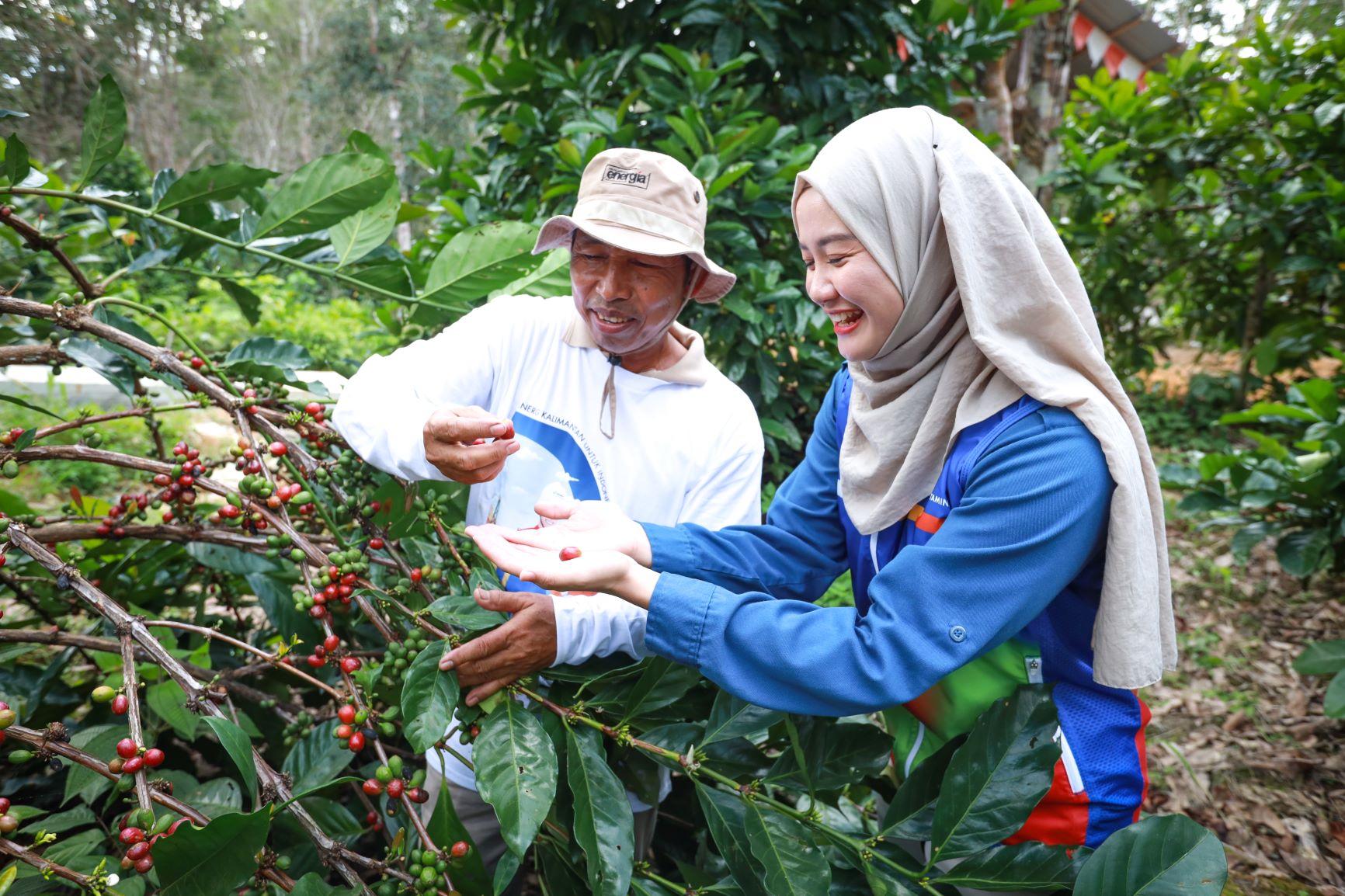21
Oct

Marangkayu, East Kalimantan– The synergy and collaboration between PT Pertamina Hulu Kalimantan Timur (PHKT) and coffee farmer groups in Prangat Baru Village, Marangkayu, Kutai Kartanegara, East Kalimantan, has successfully transformed the village into an educational and tourism area (edutainment). Through the Kampung Kopi Luwak Desa Prangat Baru Program, abbreviated as Kapak Prabu, the community's economic conditions have improved by introducing Liberica coffee cultivation. At the same time, the environment is preserved through the conservation of civet cats, which enhances the economic value of coffee.
Since its development as an edutainment destination, the number of domestic and international tourists visiting Prangat Baru Village has continued to rise. From 591 tourists in 2022, the number increased to 1,763 tourists in 2023.
The head of the Kapak Prabu Farmer Group, Rindoni, revealed that his party will work with the Natural Resources Conservation Agency/Balai Konservasi Sumber Daya Alam (BKSDA) of Kutai Kartanegara Regency to examine the effect of the increasing intensity of guest visits to the Kapak Prabu Program on the existence of wild mongoose animal habitats in this area. "Planning for wild mongoose monitoring activities must be done in an integrated manner," said Rindoni.
The Kapak Prabu Program began in 2020 when PHKT, as the manager of the Santan Terminal upstream oil and gas facility, assisted in greening compost for a group of coffee farmers in Prangat Baru Village. The collaboration continued until the only Liberica Coffee and Luwak Coffee cultivation was successfully developed in East Kalimantan.
"Over time, the potential of Kapak Prabu has grown into an ecotourism village, marked by the formation of four tourist awareness groups/kelompok sadar wisata (Pokdarwis) in Prangat Baru Village with a total of 152 beneficiaries," said Rindoni.
After nearly five years of support from PHKT, the Kapak Prabu Program is considered ready to advance to full independence. Rindoni explained that they are opening collaboration with various other stakeholders, not just PHKT. "Government involvement is also important, where the government needs to contribute ideas that can be applied. Additionally, academics can help train serious farmers to optimize results," he said.
According to Rindoni, the National Capital (IKN) allows civet coffee products to develop as a distinctive East Kalimantan souvenir. This can be achieved through branding and marketing strategies involving entities such as hotel associations in East Kalimantan.
Rindoni mentioned that the community has experienced many benefits from the Kapak Prabu Program. For example, from an economic perspective, Liberica coffee sales generate around IDR 72 million per year, production capital savings of IDR 83 thousand per month from solar panel use, and PIRT & Halal certification. Civet Liberica Coffee has four product differentiations.
Looking ahead, Rindoni plans to build an integrated communal coffee processing system by adopting waste bank records. This system aims to maintain the quality of Liberica coffee beans produced, using a single-location processing system for cherry and green beans at the Kampung Kopi Luwak coffee house in Prangat Baru Village. Coffee farmer group members can now train farmers from other villages with similar potential and challenges.
Meanwhile, Dony Indrawan, the manager of Communication Relations and CID at PHI, believes that harmonious relationships with communities in the company's operational areas will support the success and sustainability of the company's operations and business. "Therefore, we support community independence through innovative and sustainable CSR programs," explained Dony.
He noted that collaboration with all stakeholders and utilizing local potential as solutions to community issues are key to the success of the company's CSR programs, such as the Kapak Prabu Program, where the company has successfully created an educational and ecological village through support and development.
Not only coffee products, Dony also added that the Kapak Prabu Program applies environmentally friendly technology, animal conservation, and education-based tourism for the community to preserve the environment. "With the development into an ecotourism area, the paradigm of the community towards mongoose has also changed. Now people believe that mongooses must be protected because they produce mutual relationships and high economic value from the coffee beans they eat," Dony concluded.
PT Pertamina Hulu Kalimantan Timur (PHKT) is a subsidiary of PT Pertamina Hulu Indonesia (PHI) that manages upstream oil and gas operations and business according to Environmental, Social, and Governance (ESG) principles in the East Kalimantan & Attaka Working Area in East Kalimantan. Through collaboration with SKK Migas, PHKT, its subsidiaries, and other PHI affiliates run innovative Corporate Social Responsibility programs in Economics, Education, Health, Environment, Infrastructure, and Disaster Response to support sustainable community empowerment and achieve Sustainable Development Goals (SDGs). PHI is headquartered in Jakarta. More information about PHI is available on the website (https://phi.pertamina.com).